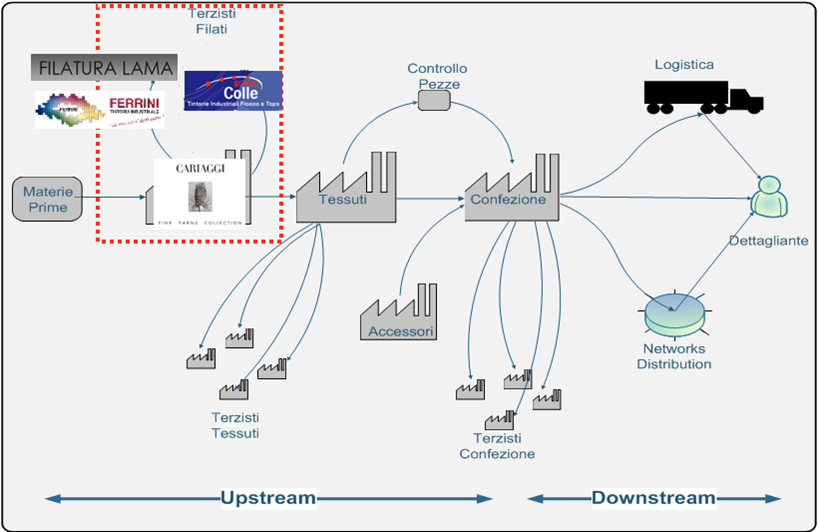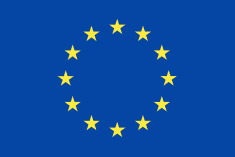![[PREVIOUS]](/ebiz/images/but_previous.gif)
![[INDEX]](/ebiz/images/but_up.gif)
![[NEXT]](/ebiz/images/but_next.gif)
![[PRINT]](/ebiz/images/but_print.gif)
|
Case Study – Consorzio IPSA
An Italian pilot (originally not an eBIZ Pilot) Consorzio IPSAThe example that follows was developed by the IPSA Consortium independently and outside the eBIZ-TCF project work. The IPSA case is relevant in present contest as it shows a positive case of e-Business development which, starting from an independent project, decided to adopt the eBIZ-TCF architecture to solve their interoperability problems. the companies involved and their business relationships
The IPSA Consortium was formed in 2007 by four Italian enterprises operating in the textile industry, with the aim of designing and implementing a state of the art B2b cooperation system based on the ICT technologies.
the e-business network set up and the documents being exchangedThe project was funded by the Italian Ministry of Economic Development and managed by the Fondazione Politecnico di Milano. An initial analysis led to the choice of Moda-ML (which is now part of the eBIZ-TCF framework) as the standard communication language, after which the project designed and implemented technical infrastructure to supporting the exchange of business messages. The platform is based on the HERMES 2 technology and operates as a mediator assuring compliance with the ebXML framework. The infrastructure is characterised by good flexibility and can be used either in “web mode”, a light way which does not impact the existing Information Systems, or in “P2P mode” which allows the direct communication between companies’ ERPs, but requires adaptation of the connectivity systems.
As of now, both types of communication allow the exchange of an initial set of business documents, such as orders, order responses, order changes and despatch advices between Cariaggi and its partners.
Resulting benefitsAs the platform is in the testing and consolidation phase, little statistical data is available at present. However, the qualitative benefits which have been experienced so far include:
Planned future activitiesThe project is foreseen to be extended in two directions: Lessons learntDuring the project, two main issues have had to be faced:
Contact:
Contact:
Fondazione Politecnico di Milano |
Resources | ||
|
||
![[PREVIOUS]](/ebiz/images/but_previous.gif)
![[INDEX]](/ebiz/images/but_up.gif)
![[NEXT]](/ebiz/images/but_next.gif)
![[PRINT]](/ebiz/images/but_print.gif)
|








